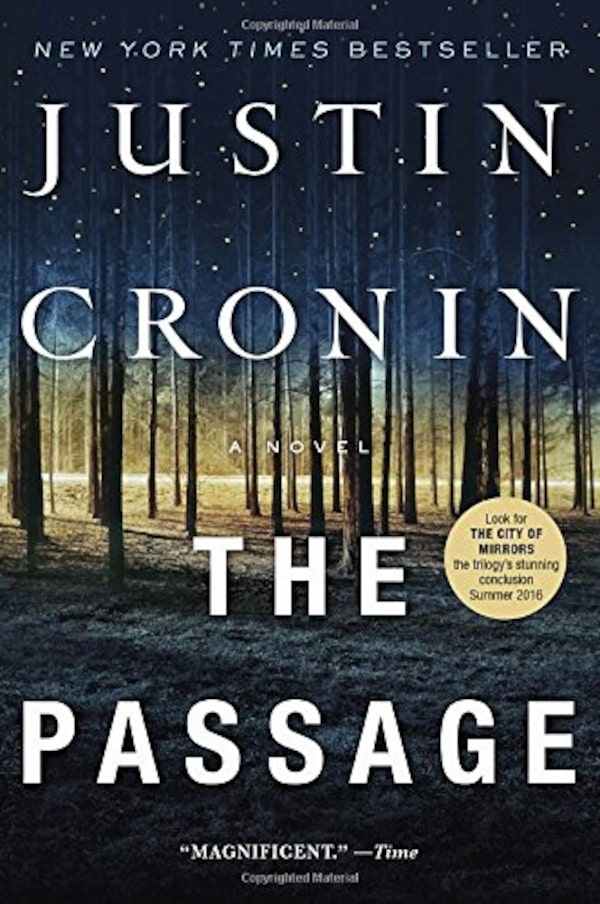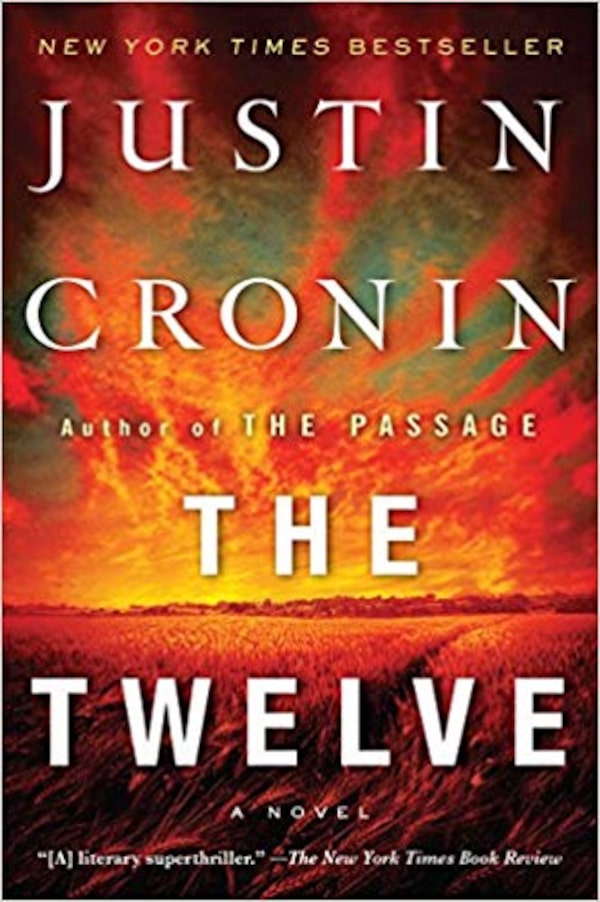Just as it is dangerous to judge a book by its cover – unless it’s designed by Chip Kidd, in which case the cover may well be better than the pages that follow – it is a mistake to judge a book by its network-television adaptation.
Early in 2019, Fox will premiere The Passage, a splashy sci-fi series that seems to be the network’s five-years-too-late answer to Lost, or at least a steady ratings-grabber in the vein of NCIS: Whatever City It Is This Time. Fox’s log line for the series sounds fine enough, focusing on “10-year-old Amy, who is chosen to be a test subject for a secret government medical facility, and Brad Wolgast, the federal agent who becomes her surrogate father as he tries to protect her.”

The trailer for the pilot episode highlights so-so action commensurate with a basic-cable budget, plus plenty of dialogue-heavy exposition and the presence of Mark-Paul Gosselaar as Wolgast. If I hadn’t cut the cable chord a year ago, I’d likely watch The Passage if fate decided the corresponding air time was right to fold laundry or prep my son’s lunch for the next day.
But The Passage isn’t just another potentially sure-whatever, low-stakes TV show: It may very well be a crushing disappointment to anyone who’s devoured Justin Cronin’s masterful trilogy of novels upon which the series is based.
This problem was inevitable. In 2007, three years before Cronin’s first book was even published, Ridley Scott’s production company optioned the rights based on the unfinished manuscript alone for US$1.75-million. The ever-canny Scott knew then what readers around the world were soon to discover – that Cronin is a masterful storyteller, that The Passage is one of the finest series of page-turners ever crafted and that its world is perfect for whichever platform would come calling, content-starved and insatiable. (Initially, Scott planned to turn the first novel into a film alongside his Gladiator screenwriter John Logan; somewhere along the way, this got downgraded to a weekly series starring Zack Morris.)
Although it might seem otherwise, I wish the best of luck to The Passage show-runner Liz Heldens, because translating Cronin’s work with anything less than a Game of Thrones-style budget and a network commitment of five-plus seasons seems to be an insurmountable challenge.
Taking place in the near future but eventually spanning more than a thousand years, Cronin’s trilogy chronicles a world overrun by vampire-like monsters, former humans who fell prey to a mysterious virus. The first novel details the efforts of Wolgast and Amy to outrun the initial outbreak, before jumping a century ahead to survey the humans who live in remote colonies across America, content to wait out the plague and forget history.

The two subsequent novels (2012′s The Twelve and 2016′s The City of Mirrors) retrace certain slices of each time period’s history, before Cronin loops his narrative back around to where it all began, resulting in a staggering, near-perfect tale of survival, horror and heartbreak.
Upon The Passage’s arrival eight years ago, reviewers were tripping over themselves to trumpet the novel’s elevated-genre bona fides, given how the Harvard-educated Cronin earned his MFA from the Iowa Writers' Workshop and was an English professor at Rice University. Finally, a literary-inclined readership could enjoy the spoils of Stephen King-esque terrors! But Cronin’s work is not merely The Stand for snobs. By treating the end of the world like an epic case of heartache, Cronin created a towering, transformative work of art that resists easy labels at every turn.
Recalling certain passages – from a train-station-set evacuation midway through The Passage to a dizzying hundred-page-plus diversion into campus romance in The City of Mirrors – is enough to elicit shivers and tears. I’m loath to reveal much plot or name too many characters as the narrative pushes forward, lest new readers be robbed the experience of discovering Cronin’s surprises for themselves. Even staring down the sheer size of the trilogy – 1,952 pages in all – feels, today, less like a physical challenge and more a bounty of engagement and enlightenment.
For his part, Cronin seems enthusiastic about his world’s transition from page to screen, this summer calling Fox’s adaptation “completely strange in such a great way … I’ve spent 10 years marinating with this material, in the background, with the idea that someday it will become a television show. … It’s marvellous and disorienting, and it’s deeply cool.”
I, too, hope that the series is deeply cool – and sweeping, and terrifying, and devastating. Perhaps it even is. But instead of just waiting and hoping, I’ll revisit Cronin’s words, where those sensations are guaranteed.
 Barry Hertz
Barry Hertz